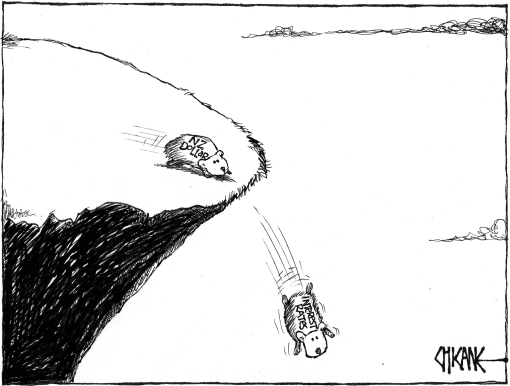Recession in New Zealand: What does iPredict say?
In practical terms this seems like an absolute fact – New Zealand has had a recession over the first half of 2008. However, to satisfy the iPredict contract we need a technical recession.
As we have suggested before, the main risk to this contract stems from the March quarter being revised up – as partial indicators are telling us that June will be very negative. If March is revised to zero (or positive) the contract will not pay out.
Now interestingly, Goonix (who is a big fan of iPredict) said that the contract slumped to 0.70c on Sunday (suggesting that there is a 70% chance of a recession) – well down on the 0.93 it was recording a couple of days earlier. Given that Stats released manufacturing on Monday, and needs GDP for the Friday BOP release the GDP number would have been finalised by Friday. Does this imply that some people at Stats have some inside knowledge about an upward revision to the March numbers and have been trading on it? If so, they are going to make an absolute killing!


